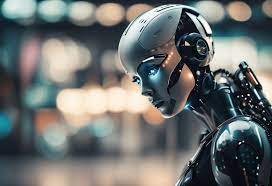The Era of AI Personal Assistants
In today’s digital age, artificial intelligence (AI) has revolutionized various aspects of our lives, and one of the most notable developments is the emergence of AI personal assistants. These virtual companions utilize machine learning algorithms and natural language processing to perform tasks, answer queries, and streamline daily activities, making them an indispensable tool for individuals and businesses alike.
The Evolution of AI Personal Assistants
1. From Siri to Alexa: A Brief History
- AI personal assistants first gained widespread attention with the introduction of Apple’s Siri in 2011, followed by Amazon’s Alexa in 2014 and Google Assistant in 2016. Since then, these virtual assistants have become increasingly sophisticated, offering a wide range of features and capabilities to users.
2. Integration into Everyday Devices
- One of the key factors driving the ubiquity of AI personal assistants is their integration into a variety of everyday devices, including smartphones, smart speakers, wearables, and home appliances. This seamless integration allows users to access their assistant from anywhere, at any time, using voice commands or text input.
3. Customization and Personalization
- AI personal assistants are highly adaptable and can be customized to suit individual preferences and needs. Whether it’s setting reminders, managing schedules, or providing personalized recommendations, these assistants learn from user interactions over time to deliver more accurate and relevant responses.
The Role of AI Personal Assistants in Daily Life
1. Streamlining Productivity
- AI personal assistants help users manage their time more efficiently by automating routine tasks and reminders. From scheduling appointments to sending email reminders, these assistants act as virtual productivity coaches, helping users stay organized and on track.
2. Enhancing Accessibility
- For individuals with disabilities or mobility issues, AI personal assistants offer a lifeline to the digital world, providing hands-free access to information and services. By using voice commands or adaptive technologies, users can control their devices and interact with digital content more easily.
3. Enabling Smart Home Automation
- With the rise of smart home technology, AI personal assistants play a central role in controlling and coordinating connected devices and appliances. From adjusting the thermostat to turning on lights or playing music, users can control their home environment with simple voice commands.
The Future of AI Personal Assistants
1. Advancements in Natural Language Processing
- As AI technology continues to evolve, we can expect to see further advancements in natural language processing, allowing personal assistants to understand and respond to complex queries more accurately and intuitively.
2. Integration with Emerging Technologies
- AI personal assistants will increasingly be integrated with emerging technologies such as augmented reality (AR), virtual reality (VR), and the Internet of Things (IoT), providing users with even greater control and customization over their digital environments.
3. Expansion into New Domains
- In the future, AI personal assistants may expand beyond their current roles to encompass new domains such as healthcare, finance, and education. By leveraging AI-driven insights and predictive analytics, these assistants could revolutionize how we access and interact with essential services.
Embracing the AI Revolution
AI personal assistants have become an indispensable part of our daily lives, offering convenience, efficiency, and accessibility in an increasingly digital world. As technology continues to advance, these virtual companions will play an ever-expanding role in shaping how we work, communicate, and interact with the world around us.




